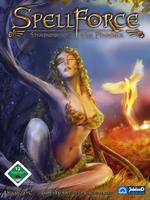|
|
|
Main News Forums Games Games Database Top 100 Release List Support Files Features Reviews Previews Interviews Editorials Diaries Misc Download Gallery Music Screenshots Videos Miscellaneous Staff Members Privacy Statement |
Random Dialogue: The Setting is the Story Fantasy
The standard set of tropes that Massively Multiplayer games drag around are based in the realm
of fantasy. The reason for this is historical; the first MUDs were by and large fantasy games,
so subsequent worlds which use MUDs, MOOs, MUSHs, etc as their templates tended towards a
fantasy setting. While this has lead to a lot of stale and derivative designs, the fantasy
setting is still a good choice for Massively Multiplayer games. Several aspects inherent to
low-technology settings can allow the designer to make the players lives more challenging
without the players feeling unduly punished. Similarly, the relative lawlessness of the vast
areas of wilderness endemic to the fantasy genre allows for the rough and tumble gameplay that
players tend to prefer. The fantasy setting also has a few inherent disadvantages. Instant communications of players at a distance is hard to explain. Telepathy or some sort of magic can explain the ability to speak with someone on the other side of the world, but that inherently limits the number of people able to use the ability. Despite this, all fantasy games include the ability to talk with players who are not where you are. From the point of view of player-friendliness I see this as a good thing, but it is somewhat immersion breaking. Fantasy settings (almost by definition) require magic, and magical systems can be difficult. Not only does the possibility of undetected exploitation exist, but making the magic system believable is a daunting challenge. In general believability can be a challenge. Yeah, their are elves and dwarves and stuff...but why? Why did they evolve that way and where did they come from? Backstory design is very important to a fantasy setting, and skimping in this area can come back to haunt a game once the players begin to feel at home. Some of the most intriguing settings in Massively Multiplayer fantasy games are also the oldest. Everquest's unique spin on legend and magic makes it a perennial favorite. Ultima Online benefited originally from the setting, familiar to those who had already played the single-player games. More recently, Square/Enix has cashed in on the tropes they've established with their much celebrated series in FFXI. Chocobos make for impressive visual imagery, and the world they evoke is something that a lot of gamers can get behind. Science Fiction
Where fantasy settings evoke the otherworldly and mystical, science fiction settings are
popular because of the grounding they provide for players. Most players have at least a
passing familiarity with the world around them, and s/f draws from that to make the
"supernatural" believable. Because the world is more believable, the specifics of the setting
itself are more easily tweaked. Science fiction covers ground between the grim and gritty AO
and the space drama of SWG. Where fantasy tends towards well-established (perhaps tired?)
ideas, Science Fiction settings are more free to experiment. Science fiction settings are very concrete. They operate very much like the real world. Certain aspects of the fictional world are altered by the inclusion of more advanced technology but fundamentally they're more modern worlds that the average player can understand more easily. This immersion-aiding connection is exploited heavily in Anarchy Online and Star Wars Galaxies. Though there may be cyborgs and Wookies to contend with, sci-fi games are generally more approachable to players who live in the here and now.
Next week I'm going to continue this discussion by taking a look at some interesting genres
that aren't widely used in the Massively Multiplayer field. I'll touch on the design
limitations that have prevented games of other genres from becoming very successful, but for
the most part I want an opportunity to lament the absence of a good Massively Multiplayer
horror game. See you next week on "In Search of Shuggoths!".
|
|||
|
All original content of this site is copyrighted by RPGWatch. Copying or reproducing of any part of this site is strictly prohibited. Taking anything from this site without authorisation will be considered stealing and we'll be forced to visit you and jump on your legs until you give it back. |
||




